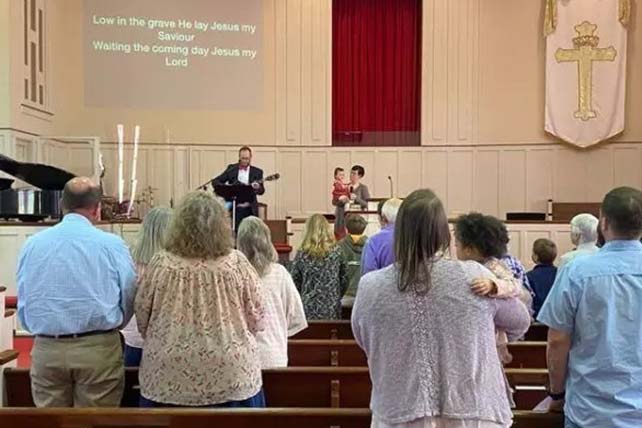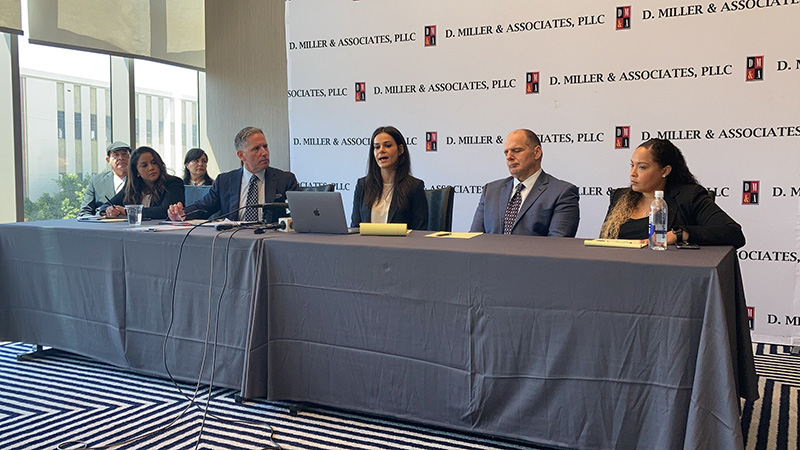SPINDALE, N.C. (BP) – Although it was difficult and painful, a North Carolina church is beginning to see the fruit of a challenging replant process that began more than two years ago.
Lead Pastor Dale DuBose and wife Meriana met and married while attending Southeastern Baptist Theological Seminary before moving to Spindale for Dale to become the youth pastor at Main Street Baptist Church in early 2015.
It was only a few months later that Main Street’s pastor would resign unexpectedly, leaving the position vacant and the congregation upset.
“It was a shock,” DuBose said. “It was a hard year both personally and with the church. It was like a funeral the day the pastor announced his resignation.”
Eventually, the pastor search committee asked DuBose to submit his name for consideration, and he did. He became lead pastor in August 2016 at the age of 23.
RELATED: Should Church Planters Receive a Full-Time Salary?
DuBose said the role has helped him complete his ministry training in a practical way.
“I had to learn how to do this on the fly in the real world, and I really learned how to preach by preaching to these people,” he said.
But the church was in a transition season, and despite his best efforts, it declined. A few members left, and giving steadily declined. DuBose took a second, part-time job at a local hospital.
The church went from around 75 members to around 50, and by early 2020 much conflict and division remained, DuBose said.
Then came the COVID-19 pandemic. Much like other churches, Main Street shifted to online ministry and shortly after the lockdown period ended, DuBose knew changes had to be made and a possible replant was in order.
RELATED: Preparing Your Family for Church Planting
He described replanting to his congregation by likening it to the gardening process of taking a dying plant in unhealthy soil and moving it to good soil where it can grow again.
The goal would be for the church to re-launch in late 2021, and DuBose said the plan was to examine every aspect of the church “leaving no stone unturned.”
“Things were not looking good and it was looking like we were going to die,” DuBose said.
“I wrestled with thinking things like ‘did the Lord send me here just to close the doors on this church?’ I even regrettably started to have doubts about if God’s Word really worked. That was a pretty low point for me.
“It became clear that we were either going to die faithfully or die unfaithfully, so I choose to die faithfully. I thought that was the best thing to do with a clean conscience before God. I was ready to risk it all.”
RELATED: SBC’s NAMB Clarifies ‘Only Qualified Men’ Can Preach at Their Church Plants
DuBose took deliberate steps to guide the church through the process. In his preaching, he began addressing things like ecclesiology and the anxiety that often comes with change. He challenged the congregation to fast one day each week, and he formed a replanting team with a handful of members.




























